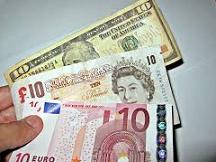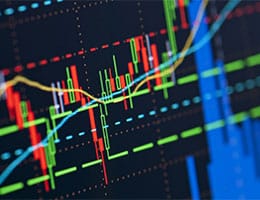 The most common use of the term currency is linked to a foreign currency . Its meaning, therefore, depends on the speaker's position. In Argentina , Chile and Uruguay , to name three cases, the dollar is a currency. In the United States , however, it is not, since it is its national currency. This means that no unit is a currency in itself.
The most common use of the term currency is linked to a foreign currency . Its meaning, therefore, depends on the speaker's position. In Argentina , Chile and Uruguay , to name three cases, the dollar is a currency. In the United States , however, it is not, since it is its national currency. This means that no unit is a currency in itself.
Currencies, in short, are currencies that are part of a monetary sovereignty different from that of the country in question. Returning to the previous example, the governments of Argentina , Chile and Uruguay have no influence over the dollar, they cannot apply monetary policies to influence it. The US authorities, on the other hand, can modify their conditions.
The value of currencies usually varies according to the operations carried out in the international monetary market . In this way, the exchange rate is established, which is the relationship between a national currency and a foreign currency. At the end of July 2018, to buy a dollar in Argentina , you had to hand over almost 28 pesos . The exchange rate of this currency in Argentine territory, thus, was about 28 pesos per dollar .
Currencies constitute a very important component of the economy . To import services and goods, or to make investments abroad, foreign currency is needed (usually dollars or euros). These currencies, in turn, are obtained thanks to exports and foreign investments. The level of foreign currency available in a country depends on the relationship between outgoing currencies and incoming currencies.
Currently, the market gives us the possibility of buying and selling various types of currencies internationally without leaving our Internet browser. More specifically, today's investors often use an online market called Forex ; It is important to note that its opening hours have limits: it remains open for five days a week.
 To make money through the purchase and sale of currencies it is necessary to have certain knowledge, combined with good intuition and, as in many other cases, a little luck. The first step to a successful transaction is to examine the exchange rate for the currency we are interested in based on the one we want to sell, paying special attention to the fluctuation of its values in recent times.
To make money through the purchase and sale of currencies it is necessary to have certain knowledge, combined with good intuition and, as in many other cases, a little luck. The first step to a successful transaction is to examine the exchange rate for the currency we are interested in based on the one we want to sell, paying special attention to the fluctuation of its values in recent times.
Fluctuation in currency values is very common, and can occur for many reasons, such as government instability or even a natural disaster. Once we understand all this, we must develop a strategy that focuses on purchasing currencies whose value we believe will increase using others whose value we believe will decrease.
Needless to say, in this type of operations there is always a risk proportional to the magnitude of each investment, which is why we must be convinced before taking a step. A very common practice among investors is the so-called "leverage", which consists of borrowing money to cover the purchase of new currencies. Of course, this bet adds to the risk of losing money the risk of contracting a considerable debt.
Although forex trading may seem daunting at first, given that the potential benefits are incalculable, we should not squelch our desire to become investors because of the fear of losing money. Fortunately, in most online markets we have the possibility of creating an account to carry out simulations, the best way to learn until we are sure that we can move "into the real world."
